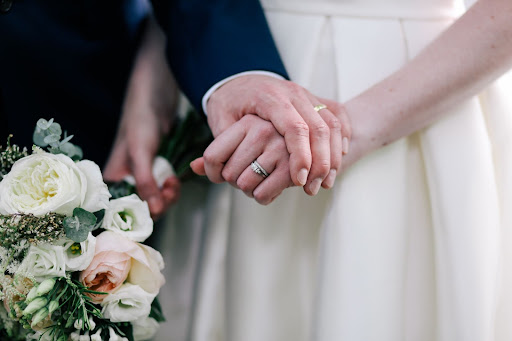Wedding planning is a combination of stressful and exciting. Yes, you’re planning for one of the most wonderful days of your life, but it’s also one of the most important. So, you understandably want to get it right.
When it comes to weddings, there are a whole lot of moving parts to keep track of. This means that there are plenty of things that can slip through the cracks and go wrong before you notice. This is where wedding planning comes in. On the day, you don’t want to be worrying about everything behind the scenes. So, a good plan can help things run smoothly and allow you to concentrate on what matters. Your marriage and commitment to the one you love for years to come.
Start Early

The average length of an engagement in the US is between a year and 18 months, which gives you a comfortable amount of time to arrange your affairs and to plan your wedding. However, the length of your engagement is entirely up to you. Some couples get married within a month of the proposal, while others wait years before finally tying the knot.
If you do go for the 12-18 month option, then wedding planning should start as soon as possible. While you don’t need to have the details all mapped out quite yet, getting the ball rolling sooner rather than later will only reduce your stress.
The first thing to do is to agree on a budget and start saving. If you have a budget in mind, then it’s easier to set your expectations on what kind of wedding you want. A full-on princess wedding with all of the trimmings and a horse and carriage will cost an awful lot more than a simple outdoor wedding with your closest friends and family watching on.
Another thing you want to get sorted out quickly is the legal side of things. While a wedding is undeniably romantic, it’s also a legal arrangement with all the trappings you’d expect. Learn about the marriage license laws in your area and what other paperwork might be required.
You should also plan your wedding planning. Again, nothing needs to be set in stone quite yet, but if you know approximately how long your engagement will last and what needs doing, then you won’t be caught unawares two weeks before your wedding without a dress, venue, or any guests.
The Guest List
Speaking of guests, they are perhaps one of the most tricky parts of any wedding. Sorting out a guest list can be tense, to say the least. Usually, everyone will have a say, but remember who’s footing the bill for all this. Reducing the number of guests is the easiest way to keep costs down and you can’t reasonably invite everyone.
One way to decide on your guest list is to arrange any potentials into tiers. It sounds harsh, but it’s a good way to keep numbers down. Typically, your immediate family, bridal party, and best friends are at the top. Then you have extended family and close friends. Under that, you can list other potential guests like coworkers and parents’ friends. When you need to make cuts, start at the bottom.
Invite your guests sooner rather than later. You can invite them once you have the time, date, and venue sorted, but some couples choose to send a pre-RSVP even earlier, perhaps once they have an approximate date.
Bear in mind that not everyone will be able to make it, and between 10-20% of your invitees won’t attend. This is why early invitations are best, as they allow you to make changes if you need to. You will still get some who RSVP’d but couldn’t make it on the day, but there’ll be fewer empty seats.
Date and Location
You might already have an idea of the preferred season of your wedding, but you should take some time to consider the ideal date. Some of your guests might not be available for certain dates, such as weekdays, even if they are cheaper. Also, you need to think about the weather and any other events or holidays that might hinder your plans.
The location of your wedding has a huge impact on your budget and the number of guests that you can host. Read reviews and visit the venues in person to get an idea of what they’re like. As well as the wedding itself, you should also consider hotel rooms for at least the bridal party. Most people book their venues six months in advance, although you might get a cheaper deal if you book only two months in advance. This is a riskier option, however.
Consider a Wedding Planner or Package

Some venues offer a package deal, where they arrange much of your wedding so you don’t have to. Typically, these include hotel rooms, catering services, an officiant, and sometimes even a band.
Another option is to hire a wedding planner. Some hotel packages include a planner, but you can hire one yourself. A good wedding planner will be able to use their expertise to smooth out the wedding planning process while making sure that your wishes come true.
Hair, Makeup, and the Dress
Whether you’re going for a princessy wedding or a simple affair, the bridal party should always look fantastic. You can either hire professional makeup and hair stylists for the job or handle it yourselves. One great tip is to use hair extensions for yourself and your bridesmaids. This way, you aren’t constrained by shorter hair if you want certain hairstyles.
When it comes to the dress, you can either have one made to fit or bought off the shelf. Fitted dresses are stunning but expensive. Another option is to buy a dress off the shelf and have it adjusted and altered to fit you perfectly.
Other Necessary Vendors
Of course, you can’t forget the other vendors. From wedding photographers to caterers and bartenders, the vendors are what make your event. So, take care when you hire your vendors. Listen to their advice and treat them well, and they’ll help your day to be one to remember.
Published on Holr Magazine


